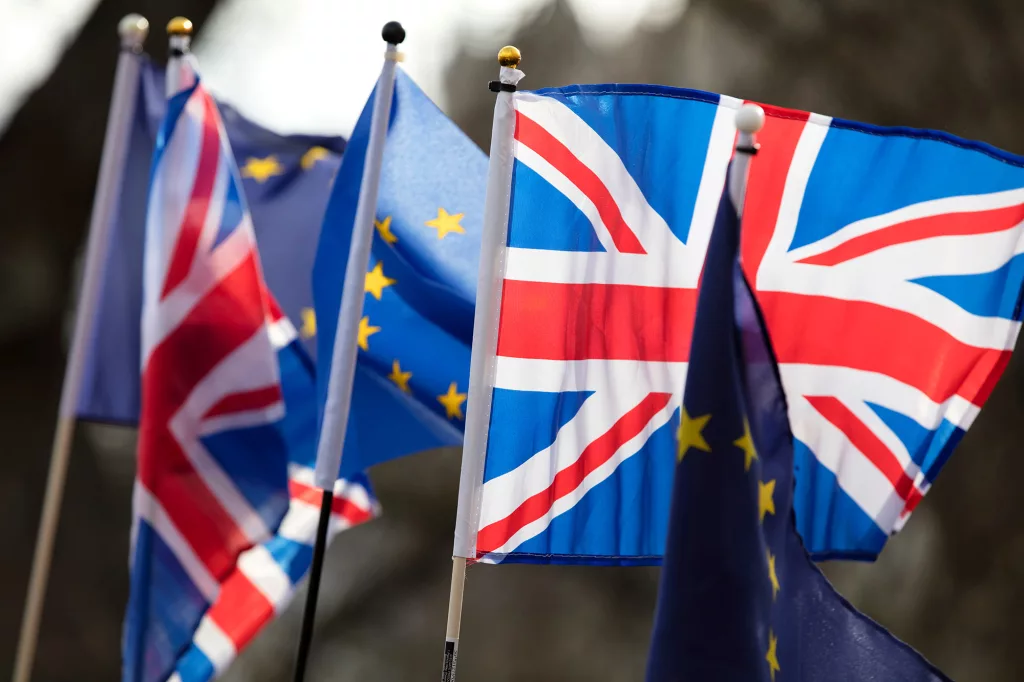One Man’s View of the Mountain: UK Urgently Needs to Rejoin EU to Create Economic Security
Both parties are promising growth, but which policies are most likely to generate it?
Growth is essential for continually improving living standards over the long term. However, British politicians fixate on growth for another reason: it ensures the feasibility of their tax-and-spending plans. Both major political parties adhere to a fiscal rule mandating that government debt must decrease as a percentage of GDP between the fourth and fifth year of the forecast period.

In the 1960s, the dominant fear was that France and Germany would soon surpass the UK economy. Today, the concern is that Britain might become poorer per capita than Poland within the next decade!
Unsurprisingly, promises to revive growth are central to the general-election campaign. Prime Minister Rishi Sunak claims the economy is at a crucial turning point and urges voters to “stick with the plan.” Labour, which currently seems to be on course for a substantial majority on July 4th, says it will prioritise economic growth if it comes to power, with Shadow Chancellor Rachel Reeves committing to lead the most “pro-growth, pro-business Treasury our country has ever seen”.
As much as Labour promises to prioritise growth, it requires an initial injection of investment, which may come from taking on more debt or raising taxes, or other innovative mechanisms such as using pension funds to invest into British startup companies. However, economic growth cannot come without a well integrated supply chain, affordable energy and affordable labour; be it in the UK or elsewhere. I cannot see how that happens without rejoining the EU. Based on the latest forecasts from the OBR relating to Brexit, they now say, “The post-Brexit trading relationship between the UK and EU, as set out in the ‘Trade and Cooperation Agreement’ (TCA) that came into effect on 1 January 2021, will reduce long-run productivity by 4 per cent relative to remaining in the EU”.
Our debt stands at £2.7 trillion, and right now, policies about creating a National Wealth Fund or a publicly-owned renewable energy company are just lip service. Policies are not about repaying the capital but servicing the debt which is increasingly becoming more expensive. We have an ageing population, a population with a low birth rate, a population that’s increasingly too ill or depressed to work, and a population that expects a certain social contract. This needs to be funded but we need access to new markets, a new labour force and a supply of crucial raw materials.
We can’t begin to resolve this until we put ourselves in a stronger position with an economic bloc, the EU, that can build strong economic alliances with another powerful emerging economic bloc – BRICS. But it would be done by better ensuring the protection of the EU as a whole as opposed to individual European countries negotiating their own trade relationships.
Frankly, Nigel Farage, no matter how charming and patriotic one can be with an EU passport, has been the single greatest threat to not only the future economic prosperity of the UK but our national economic security. If this isn’t reversed, I envision a weaker UK, a weaker EU, with a greater reliance on the US.
Mohammad Uz-Zaman is director of ADL Estate Planning
You may have an interest in also reading…
BlueRock’s Ronny Pifko: A Solid Strategy Built on Strong Foundations
CFI.co’s Jason Agnew finds out from BlueRock Group’s Managing Partner, Ronny Pifko, how they’ve kept constructive during testing times. When
UBS CEO Ralph Hamers: Understated Efficiency in Minding the Bottom Line
On Monday, 2 November, Ralph Hamers (53) will take the exclusive side entrance of UBS Group’s imposing head office on
South Africa Looks on While Brazil and India Face Off China and Russia
Johannesburg BRICS Summit (22-24 August 2023) Is the Johannesburg summit anything more than just a chatgroup meeting for importers and
















































































